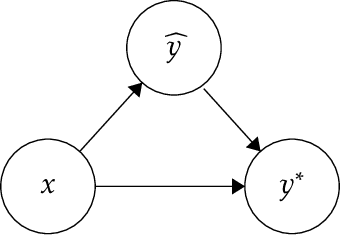Making Decisions under Outcome Performativity
Paper and Code
Oct 04, 2022

Decision-makers often act in response to data-driven predictions, with the goal of achieving favorable outcomes. In such settings, predictions don't passively forecast the future; instead, predictions actively shape the distribution of outcomes they are meant to predict. This performative prediction setting raises new challenges for learning "optimal" decision rules. In particular, existing solution concepts do not address the apparent tension between the goals of forecasting outcomes accurately and steering individuals to achieve desirable outcomes. To contend with this concern, we introduce a new optimality concept -- performative omniprediction -- adapted from the supervised (non-performative) learning setting. A performative omnipredictor is a single predictor that simultaneously encodes the optimal decision rule with respect to many possibly-competing objectives. Our main result demonstrates that efficient performative omnipredictors exist, under a natural restriction of performative prediction, which we call outcome performativity. On a technical level, our results follow by carefully generalizing the notion of outcome indistinguishability to the outcome performative setting. From an appropriate notion of Performative OI, we recover many consequences known to hold in the supervised setting, such as omniprediction and universal adaptability.
 Add to Chrome
Add to Chrome Add to Firefox
Add to Firefox Add to Edge
Add to Edge